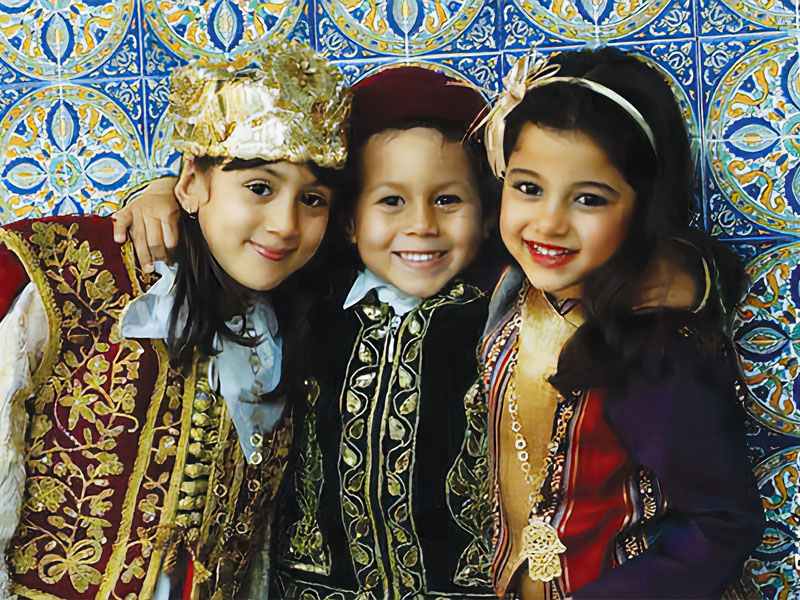Children's Lyrical Heritage Games: Their Symbolic and Realistic Functions and Connotations
Issue 54

Dr Al Hadi Missillyini, a writer from Tunisia
A study of children's lyrical games in Tunisia shows us that games are an integral part of a culture. Games are a means by which an individual can absorb, assimilate and be influenced by the culture of his community, and interact with it in his spare time to acquire social behaviours that are in line with the culture’s customs, traditions and values.
These games are also an important part of the entertainment that develops the individual's mental, physical and emotional abilities. Games support mental and psychological health because of their important advantages and purposeful characteristics. Games help the individual to nurture his hobbies and his abilities, potential and inclinations while meeting his needs. Games also provide children with entertainment and joy.
Lyrical games have characteristics and features in terms of composition, melodic structure, tonal sequence and motor formation, which depends on movements and the children's voices.
Traditional lyrical games helped to build children’s social personalities. Until recently, games played important roles in shaping the culture and heritage associated with daily life. When we consider the educational, social and cultural functions of these games, we find that they enhance customs, traditions and skills and help to transmit them among generations to form a folk culture rich in human and social meaning that enhances the sense of belonging and the relationship to a homeland.
We conclude that lyrical games reflect a true image of folk literature. Likewise, the lyrical texts that we have transmitted from books or narrators are in themselves reflections of a culture. They also reflect the people’s suffering at different stages including women’s suffering, a mother’s wishes for her children as she sings to them, and the suffering of people trying to make a living.
Play is inseparable from reality in its form and content, and the relationship between play and reality is not abstract. Instead, it is an interaction between two parties from which the individual's movement is generated within the framework of society.
This perspective on traditional lyrical games was unclear to many researchers, who were content to focus only on the most superficial aspects of the games. They did not pay attention to the content of this legacy, which includes expressing oneself with words, movement and singing to relieve the pressures imposed by reality.







































































